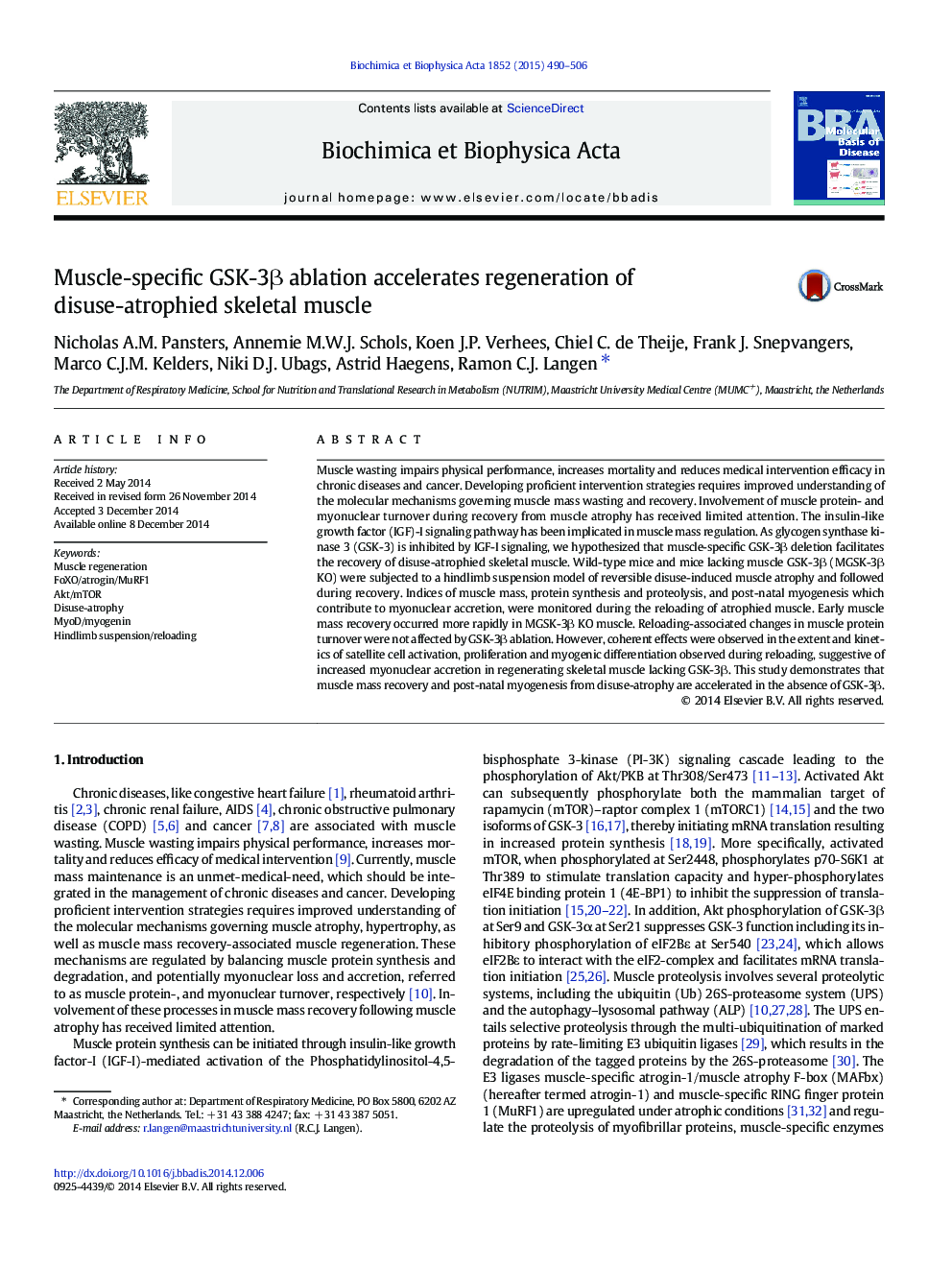| Article ID | Journal | Published Year | Pages | File Type |
|---|---|---|---|---|
| 1904659 | Biochimica et Biophysica Acta (BBA) - Molecular Basis of Disease | 2015 | 17 Pages |
•Muscle-specific deletion of GSK-3β accelerates early muscle mass recovery.•Effectors of protein turnover are grossly unaffected by GSK-3β deletion.•Absence of GSK-3β promotes post-natal myogenesis during early muscle mass recovery.
Muscle wasting impairs physical performance, increases mortality and reduces medical intervention efficacy in chronic diseases and cancer. Developing proficient intervention strategies requires improved understanding of the molecular mechanisms governing muscle mass wasting and recovery. Involvement of muscle protein- and myonuclear turnover during recovery from muscle atrophy has received limited attention. The insulin-like growth factor (IGF)-I signaling pathway has been implicated in muscle mass regulation. As glycogen synthase kinase 3 (GSK-3) is inhibited by IGF-I signaling, we hypothesized that muscle-specific GSK-3β deletion facilitates the recovery of disuse-atrophied skeletal muscle. Wild-type mice and mice lacking muscle GSK-3β (MGSK-3β KO) were subjected to a hindlimb suspension model of reversible disuse-induced muscle atrophy and followed during recovery. Indices of muscle mass, protein synthesis and proteolysis, and post-natal myogenesis which contribute to myonuclear accretion, were monitored during the reloading of atrophied muscle. Early muscle mass recovery occurred more rapidly in MGSK-3β KO muscle. Reloading-associated changes in muscle protein turnover were not affected by GSK-3β ablation. However, coherent effects were observed in the extent and kinetics of satellite cell activation, proliferation and myogenic differentiation observed during reloading, suggestive of increased myonuclear accretion in regenerating skeletal muscle lacking GSK-3β. This study demonstrates that muscle mass recovery and post-natal myogenesis from disuse-atrophy are accelerated in the absence of GSK-3β.
